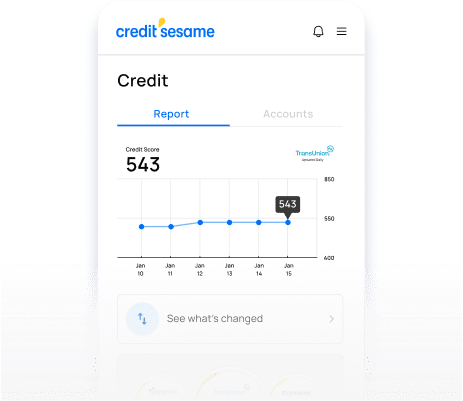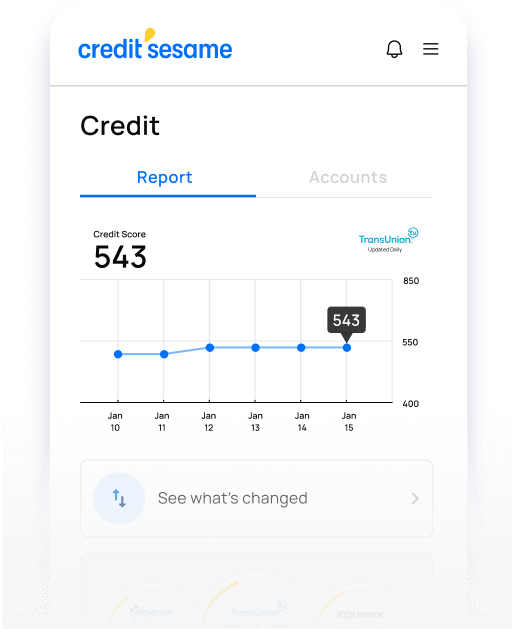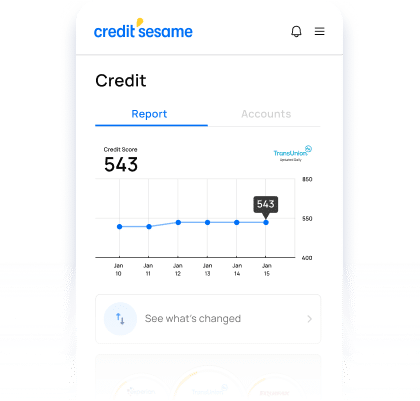What gets reported to the credit bureaus?

Get your FREE credit report summary
See the factors impacting your credit score and what you can do about it. 100% free.
By clicking on the button above, you agree to the Credit Sesame Terms of Use and Privacy Policy.
Examples of what gets reported to the credit bureaus
- Personal identifying information. This includes your name, address, Social Security number, birth date, and other identifying information. This information is used to identify you and to match your credit report to your other financial accounts.
- Credit accounts. A list of all of your credit accounts, such as credit cards, loans, and mortgages. The credit bureaus track the type of account, the creditor, the account number, the balance, and the payment history.
- Payment history. This is the most important information that is reported to the credit bureaus. It shows how you have made your payments on your credit accounts over time. A good payment history helps you to build a good credit score.
- Public records. This includes any public records that may affect your credit, such as bankruptcies, foreclosures, or tax liens. These records are typically reported for 7-10 years.
- Hard credit inquiries. This includes any recent requests for your credit report. Lenders typically pull your credit report when they are considering you for a loan or credit card. Hard inquiries can have a small negative impact on your credit score and remain on your credit report for up to two years.
- Soft credit inquiries. This includes any inquiries that have been made into your credit report. This information is not used to calculate your credit score, but it can be helpful to see who has been accessing your credit report.
- Debt collections. If you have a debt that has been sent to collections, this information will be reported to the credit bureaus.
- Foreclosures. If your home has been foreclosed on, this information is reported to the credit bureaus.
- Judgments. If you have been sued and a judgment has been entered against you, this information is reported to the credit bureaus.
- Bankruptcies. If you have filed for bankruptcy, this information is reported to the credit bureaus.
How do the credit bureaus get my personal information?
Credit bureaus actively collect information on consumers from various sources. While much of the information reported to credit bureaus comes from creditors and lenders, credit bureaus also collect data from public records, such as bankruptcies, tax liens, and court judgments. Additionally, credit bureaus gather data from collection agencies and other third-party sources.
Credit bureaus maintain databases with comprehensive credit information on consumers, including their payment history, credit limits, outstanding balances, and public records. They compile this data to create credit reports, which are used by lenders, landlords, employers, and others to assess an individual’s creditworthiness.
It’s important to note that credit bureaus have specific guidelines and regulations they follow regarding the collection and reporting of consumer information. They are required to ensure the accuracy and integrity of the data they collect and to provide consumers with the opportunity to dispute any inaccuracies in their credit reports.
How can I be sure information reported to the credit bureaus is accurate?
- Obtain your credit reports. Request a free copy of your credit reports from the three major credit bureaus, TransUnion, Experian and Equifax or via annualcreditreport.com
- Review your reports thoroughly. Carefully examine each section of your credit reports, including personal information, account history, public records, and inquiries. Pay close attention to any discrepancies or errors.
- Verify personal information. Check that your name, address, Social Security number, and other identifying details are correct. Errors in personal information can lead to mix-ups in credit reporting.
- Verify account information. Review the accounts listed on your credit reports, including credit cards, loans, and other lines of credit. Ensure that the accounts are accurate and belong to you. Look for any unauthorized or fraudulent accounts.
- Check payment history. Review the payment history of each account. Verify that the reported payment dates, amounts, and status (such as “current” or “late”) are accurate. Incorrect payment history can significantly impact your credit score.
- Look for errors or discrepancies. Pay attention to any discrepancies between your records and the information on your credit reports. This includes incorrect balances, accounts that you have closed but are still listed as open, or any missing positive payment history.
- Report errors to the credit bureaus. If you identify any errors or inaccuracies on your credit reports, you should dispute them with the credit bureaus. Each credit bureau has a dispute process in place. You can typically initiate a dispute online, by mail, or by phone. Provide supporting documentation to substantiate your claim.
- Follow up on the dispute. After filing a dispute, credit bureaus have 30 to 45 days to investigate and respond. They will contact the data furnishers (creditors, lenders, etc.) to verify the accuracy of the information. If the information is found to be inaccurate, the credit bureau must update your credit report accordingly.
- Monitor your credit regularly. It’s a good practice to monitor your credit regularly to catch any potential errors or signs of identity theft. You can use credit monitoring services or take advantage of free credit monitoring offered by various financial institutions and credit card companies.


Who can access information reported to the credit bureaus?
- Lenders and creditors. When you apply for a loan, credit card, mortgage, or any other form of credit, the lender or creditor typically pulls your credit report to assess your creditworthiness and determine the terms of the credit they may offer you.
- Landlords. Landlords may request access to your credit report as part of the rental application process. They use this information to evaluate your financial responsibility and determine your suitability as a tenant.
- Employers. In certain situations, employers may request access to your credit report, especially for positions that involve financial responsibilities or require a high level of trust. However, employers typically need your consent and must follow legal guidelines when obtaining credit reports for employment purposes.
- Insurance companies. Insurance companies, particularly those offering policies related to auto, homeowners, or life insurance, may access your credit report to assess the risk of insuring you. This practice is known as insurance underwriting.
- Government agencies. Government agencies may access your credit report for various purposes, such as determining eligibility for government benefits, verifying your financial status for security clearances, or investigating cases of fraud.
- Collection agencies. If you have unpaid debts that have been transferred to a collection agency, they may access your credit report to evaluate your financial situation and pursue collections.
- Credit card companies and financial institutions. Credit card companies and financial institutions may access your credit report when reviewing existing accounts or considering you for new products or services.
- Credit monitoring service. If you enroll in a credit monitoring service, they will have access to your credit report to monitor changes, provide alerts, and assist in identifying potential fraudulent activity.
Entities accessing your credit report must have a legitimate reason and comply with legal requirements, such as the Fair Credit Reporting Act (FCRA) in the United States. You have the right to know who has accessed your credit report and why.
In a nutshell
Ensuring the accuracy of your credit reports is crucial for maintaining a healthy credit profile. Regularly reviewing your reports, verifying personal and account information, and promptly disputing any errors are key steps to take. By actively monitoring your credit and taking necessary actions, you can have more control over your financial well-being.
Maintaining accurate credit information empowers individuals to make informed financial decisions. By understanding what gets reported to credit bureaus, verifying information, and addressing inaccuracies, you can work towards a strong credit foundation and greater financial opportunities. Stay proactive in managing your credit to secure a brighter financial future.

Get your FREE credit report summary
See your credit score and get insight into what’s impacting your credit
By clicking on the button above, you agree to the Credit Sesame Terms of Use and Privacy Policy.
Share this
More related articles

Get your FREE credit report summary
Understand your credit better with a free credit report summary
How to read a credit report
How to get a credit report
Value of credit reports
See your score and
credit report
summary.
See your score and credit report summary.
See the factors impacting your credit score
By clicking on the button above, you agree to the Credit Sesame Terms of Use and Privacy Policy.















